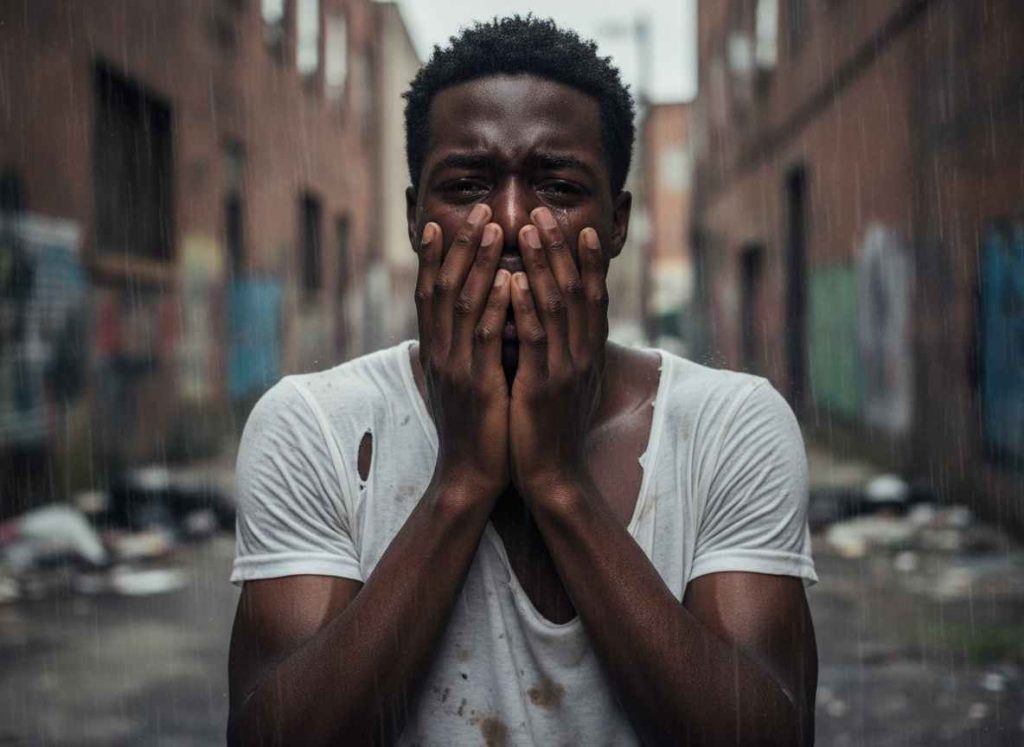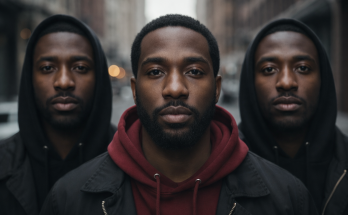By Golden Madu and Daniel Nkado

Content warning: This article contains descriptions of physical violence, sexual assault, extortion, and homophobic hate crimes. Reader discretion advised.
“He seemed so genuine. We even had sex twice. But the third time, he brought others. They beat me, robbed me, and threatened to expose me. I couldn’t tell anyone — not even my family.”
— Amachree, survivor of a Kito attack in Port Harcourt, Rivers State, Nigeria.
What is ‘Kito’?
In Nigeria, where same‑sex relationships are criminalised and queer people face severe social stigma, Kito — a pattern of luring, blackmail, extortion and violent assault targeting queer people — is widespread.
Kito refers to the deliberate luring, blackmail, extortion, robbery and, in some cases, violent assault of queer people (gay, bisexual, transgender and other sexual marginalised groups), most often by perpetrators who pose as romantic or sexual partners online.
Perpetrators commonly pose as prospective partners on dating apps like Grindr, Tinder, Badoo or social media (Facebook, Instagram) to lure victims.
A 2016 Human Rights Watch report documented widespread blackmail and violence against gay and bisexual men after the passage of the Same-Sex Marriage (Prohibition) Act (SSMPA) of 2013. Community surveys cited in related reporting showed that up to 73% of respondents had received threats of exposure and 31% had actually been extorted (Human Rights Watch, 2016)4.
The SSMPA — passed in 2013 and signed into law in January 2014 — outlaws same‑sex marriage, certain public displays or promotion of same‑sex relationships, and support for LGBTQ+ organisations, with penalties that include imprisonment of up to 14 years (Same Sex Marriage Prohibition Act, 2013)5.
In practice, the law effectively silences victims of Kito attacks and related hate crimes. Reporting a Kito crime carries a real risk of arrest or public outing. Kito attacks are often highly organised, carried out by perpetrators—sometimes from within the queer community themselves—who exploit the fact that victims have virtually no safe recourse under existing laws or social stigma (dnbstories.com, 2024)3.
Survivor Accounts: Amachree, Chikwe, and Taye
This investigation by DNB Stories Africa documents the experiences of three Nigerian men — identified here as Amachree, Chikwe and Taye — who were victims of Kito attacks.
Identifying details have been withheld or changed to protect participants.
1. Amachree: Betrayed by a ‘Lover’
Amachree thought he had finally found someone trustworthy on the Badoo app. After two consensual encounters, he let his guard down.
He told DNB Stories Africa:
“We even had sex twice. I thought I could trust him.”
But on their third meeting, the illusion shattered. The man arrived with two accomplices. Within moments, Amachree was ambushed—beaten, robbed, and threatened with being outed to his family.
Reporting the assault felt impossible. How do you seek justice in a system that criminalises your existence?
He explained:
“Who would I tell? The police? My family? They’d blame me.”
His silence was not weakness—it was survival. The physical injuries healed, but the betrayal could not.
2. Chikwe: Catfished, Stripped, Recorded and Ransomed
Loneliness led Chikwe, a 19-year-old medical student at Imo State University, to find solace in a Tinder match. Tragically, he only recognised the red flags too late. The person he believed was a genuine romantic interest had catfished him, using a fake profile as a ‘kito’ trap.
Upon arrival at the meeting place, he was ambushed. His attackers stripped him, filmed him, and forced him to give up his phone password, subsequently emptying his bank account. Their brutality intensified when they called his parents, demanding a ₦1 million ransom for his freedom.
In his words:
“They stripped me naked, filmed me, and emptied my account. Then they called my parents, demanding ₦1 million.”
His family managed to raise ₦700,000 (about $500) for his release. However, the ordeal was far from over. The attackers went ahead and leaked the humiliating video online, turning his personal trauma into a public spectacle.
Chikwe recounted:
“It wasn’t just robbery. They wanted to punish me. The next day, the video was everywhere.”
Now every whisper on campus feels like judgment. His violation lives both inside him and around him, haunting even the quiet spots that used to bring him peace.
3. Taye: Lured by a Job
After months of unsuccessful job applications, Taye was relieved when a man on Facebook said he had an opportunity for him. Their chats gradually became flirtatious, and Taye—hoping for both employment and connection—opened up about his sexuality.
He explained:
“I wasn’t even going there for sex. I just wanted a job. But I liked him, so I opened up and told him I am gay too.”
Taye insisted on meeting in a public place, but the man declined. Trusting desperation over instinct, Taye agreed to meet at his house.
The moment he stepped in, everything turned dark—literally. The lights were off, the air thick, and two men sat silently in the corner.
He added:
“Before I could turn around, they pounced on me.”
They took his phone and documents and emptied his wallet. One man threatened to expose him if he reported the assault. Terrified by both the threat and likely police harassment, Taye stayed silent — another victim silenced by fear.

How Nigeria’s Laws Enable Kito Attacks
The persistence of Kito attacks in Nigeria is rooted in the toxic intersection of law and social stigma. The Same-Sex Marriage Prohibition Act (SSMPA) does more than outlaw same-sex relationships; it actively silences victims, creating an environment where perpetrators can operate with brutal impunity (Human Rights Watch, 2016)4.
In major urban centres such as Lagos, Port Harcourt, and Abuja, Kito gangs have grown more coordinated and audacious. The threat is often fatal, tragically exemplified, alongside many others, by the recent death of Hillary Todson in October 2025, who was reported to have been thrown from a tall building during a Kito encounter (Barros, 2025)1.
A 2023 BBC Africa Eye investigation exposed a chilling twist: a suspected Kito attacker, caught during a police sting, was released because the victims, terrified of being outed, refused to testify in open court (BBC, 2023)2.
This outcome starkly illustrates how the very law intended to penalise homosexuality ends up protecting criminals. As human rights groups noted, LGBTQ+ Nigerians are painfully trapped in a perpetual dilemma between criminalisation and violence.
Harm-Reduction and Safety Strategies for Queer Nigerians
In contexts where formal reporting can put survivors at risk, practical harm‑reduction steps can reduce immediate danger. Below are safety measures to consider:
Please note that these suggestions do not replace professional legal advice.
a. Personal safety tips before going on a date
- Avoid unverified meetups: insist on public, well‑lit places and bring a trusted friend with you if possible.
- Share your meet-up details (location, profile, return time) with a trusted friend or family member.
- Arrange a preplanned check‑in message or call with someone you trust before leaving. If they didn’t see your message or call at the agreed time, they should call or alert others.
- At a meeting, position yourself near the exits or other people until safety is confirmed.
- Leave important documents (ID, passport) at home when going on dates. Leave your main wallet at home and carry your other wallet.
- Wear clothing and footwear that make running easier.
- If robbed, try contacting your bank as soon as it is safe to do so. Inform your bank without disclosing your sexual identity if it increases the risk.
Digital app safety and precautions
- Insist on video verification or live calls to confirm identity; block suspicious accounts quickly.
- Avoid sharing sensitive info too early—sexuality, finances, address.
- Use a two-app verification method before sharing details—e.g., chat on Grindr, verify on Instagram.
- Prefer end‑to‑end encrypted messaging for sensitive conversations—e.g., Signal; some suggest Snapchat and setting the chats to delete immediately after viewing.
- Don’t open up about your sexuality on platforms like Facebook.
- Create a burner account for dating apps and use a secondary SIM for new contacts; keep your main number for trusted circles only.
Evidence preservation without increasing risk
- If safe to do so, document what happened: brief notes (date, time, names/usernames), screenshots, and copied chat logs. Store them encrypted or with a trusted confidant.
- Remove visible identifiers from saved files and stash backups off your primary device (encrypted cloud or an encrypted external drive held by someone you trust).
- Avoid posting evidence publicly or in spaces where it could be weaponised against you.
- Keep evidence intact (for whenever you may need it) BUT avoid going to the police unless accompanied by a legal advocate familiar with Nigeria’s laws on LGBTQ+ issues.
Emotional safety and support after a kito incident
- Reach out to a trusted friend, chosen family, or a local community organisation experienced with LGBTQ+ crises; they can help with shelter, finances, and referrals.
- Take small grounding steps toward routine: sleep, nutrition, brief walks and contact with empathetic people.
- Don’t call or share anything with a friend that might respond with judgment, especially when the attack is still fresh. If you have to, share your story with your circle at your time.
- Look for legal aid groups and human rights organisations that offer confidential advice on the risks of formal reporting and safe alternatives.
- Prioritise services that explicitly state confidentiality and survivor‑centred, trauma‑informed care.
- If you continue to feel unsafe, consider going to stay with a trusted friend for the time being while you make plans to relocate.
These steps cannot eliminate danger, but they can reduce vulnerability.
The Urgent Call for Protection
For Amachree, Chikwe, and Taye, the danger wasn’t that they were queer but that people hunted them for it. The SSMPA and social stigma help sustain the conditions that allow these attacks to continue.
In Chikwe’s words:
“We want to live and love like anyone else…without fear that a simple ‘hi’ on an app could end in disaster.”
Criminalising same-sex relationships has given Kito gangs a potent weapon: the threat of exposure. This legal risk, combined with intense social stigma and a justifiable mistrust of law enforcement, traps victims in silence. Attackers exploit this fear to extort, coerce, and silence victims, operating with near impunity.
Until Nigeria changes laws that give criminals protection and embraces genuine inclusion, violence will keep thriving. What will happen when gangs can no longer sustain themselves by preying on young, vulnerable gay people?
Policy recommendations
The Nigerian government should, as a matter of urgency:
- Repeal or amend the SSMPA that criminalises same‑sex relationships to remove legal barriers that endanger crime reporting and enable Kito perpetrators.
- Create confidential reporting systems for victims of hate crimes that allow anonymous or protected testimony and ensure cases can be investigated without automatic criminalisation of survivors.
- Fund survivor services adequately, including safe housing, legal aid, medical care and trauma‑informed counselling that are accessible to queer people across regions.
References
- Barros, L. D. (2025, October 28). Nigeria: Queer man’s brutal murder highlights rampant “kito” crisis. https://www.mambaonline.com/2025/10/28/nigeria-queer-mans-brutal-murder-highlights-rampant-kito-crisis/
- BBC. (2023, May 12). Nigeria LGBT: The moment the police catch a ‘kito’ https://www.bbc.com/news/av/world-africa-65572952
- dnbstories.com. (2024) The Harsh Reality of Being Gay in Nigeria – DNB Stories Africa, DNB Stories Africa. Available at: https://dnbstories.com/2024/05/harsh-reality-of-being-gay-in-nigeria.html
- Human Rights Watch. (2016, October 20). Tell me where I can be safe: The impact of Nigeria’s Same-Sex Marriage Prohibition Act. https://www.hrw.org/report/2016/10/20/tell-me-where-i-can-be-safe/impact-nigerias-same-sex-marriage-prohibition-act
- Same Sex Marriage (Prohibition) Act 2013, Pub. L. No. 30 (2013). Nigeria. Available at: https://placng.org/lawsofnigeria/laws/SSMPA.pdf


